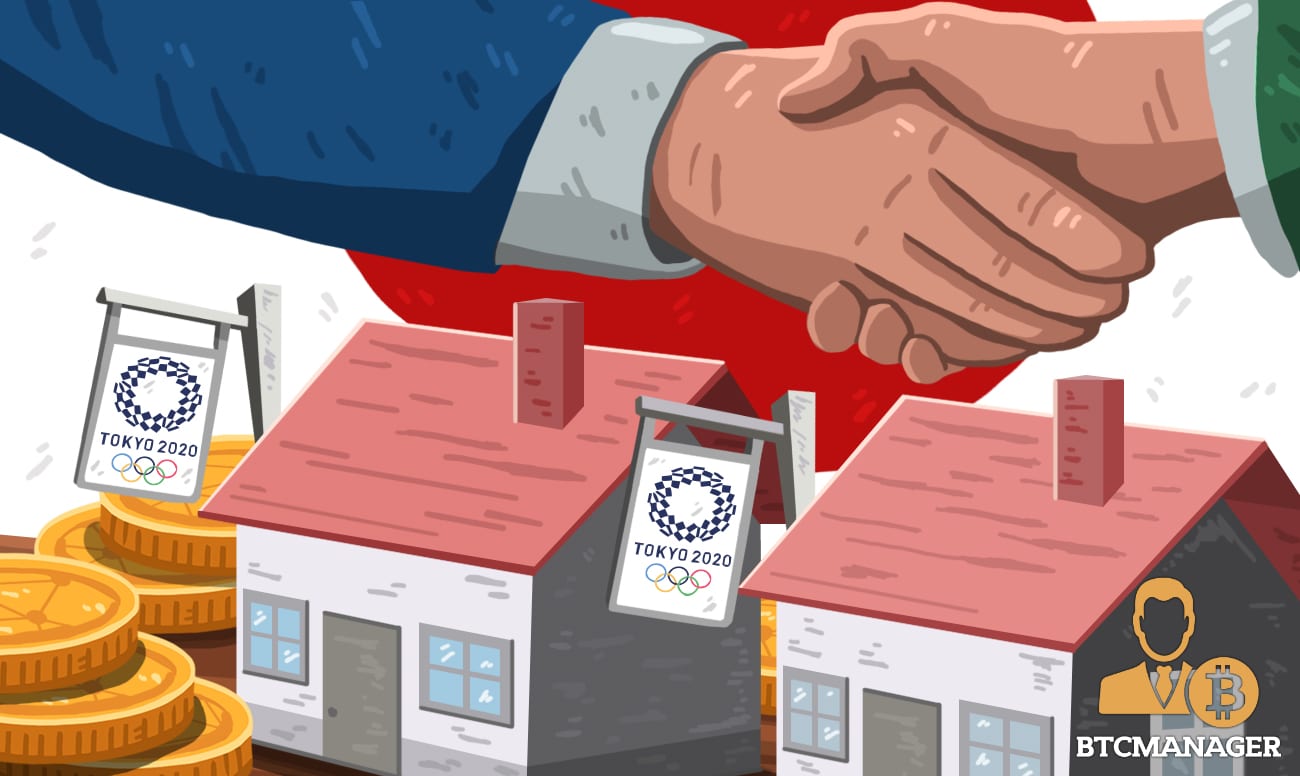Tokyo Plans to Meet Olympic Hospitality Demand with Tokenized Funding

The Tokyo Olympics are less than 10 months away and Japan’s ailing economy is looking for a way to meet the demand posed on hotels and condominiums. Lead Real Estate Group is raising funds through security tokens to finance the construction for said properties, as reported by Ledger Insights, October 22, 2019.
Use-Cases Emerge
Tokyo’s real estate market has been in a massive uptrend owing to the 2020 Olympics scheduled within the city. Residential rent is ticking upward and the inflow of foreign capital is boosting the real price of commercial property.
However, Japan is facing its own internal crisis with regard to infrastructure funding. Fluctuating real estate trends and negative borrowing rates have made development cheaper despite an uncertain long term outlook.
Smaller developers, like Lead, face the issue of obtaining a formal loan, where the market is saturated by larger entities. Using tokenization, Lead will directly sell securitized tokens in the upcoming infrastructure, and security token holders will earn a yield based on rent.
Securitized, a San Francisco based startup, will facilitate the issuance of these tokens. It is likely to comply with the security token norms set by the recently launched Japan Security Token Offering Association.
Digging deeper into this trend, there are clear signs of South Asia quickly turning into a hotbed for real estate tokenization with projects setting up shop in Korea and Hong Kong.
Reportedly, a gulf business family with property in London is in talks to tokenize $1 billion worth of property.
Real Asset Tokenization Still Risky
There are several drawbacks to tokenizing real assets. A house cannot be turned into a hash; not even the deed can be encrypted and stored on the blockchain.
If there is a central platform running the show, it becomes easier, but using tokenized real-world assets as collateral for debt is currently unviable.
One of the more critical impediments is the court of law. Imagine ‘Person A’ gives an on-chain loan to ‘Person B’, for which person B tokenizes their house and posts it as collateral. Depending on the jurisdiction in which the property lies, a court may still side with person B even in the event they default.
Cryptocurrency and token legitimacy need to be extended to the judicial system before real-world assets can be safely tokenized.














